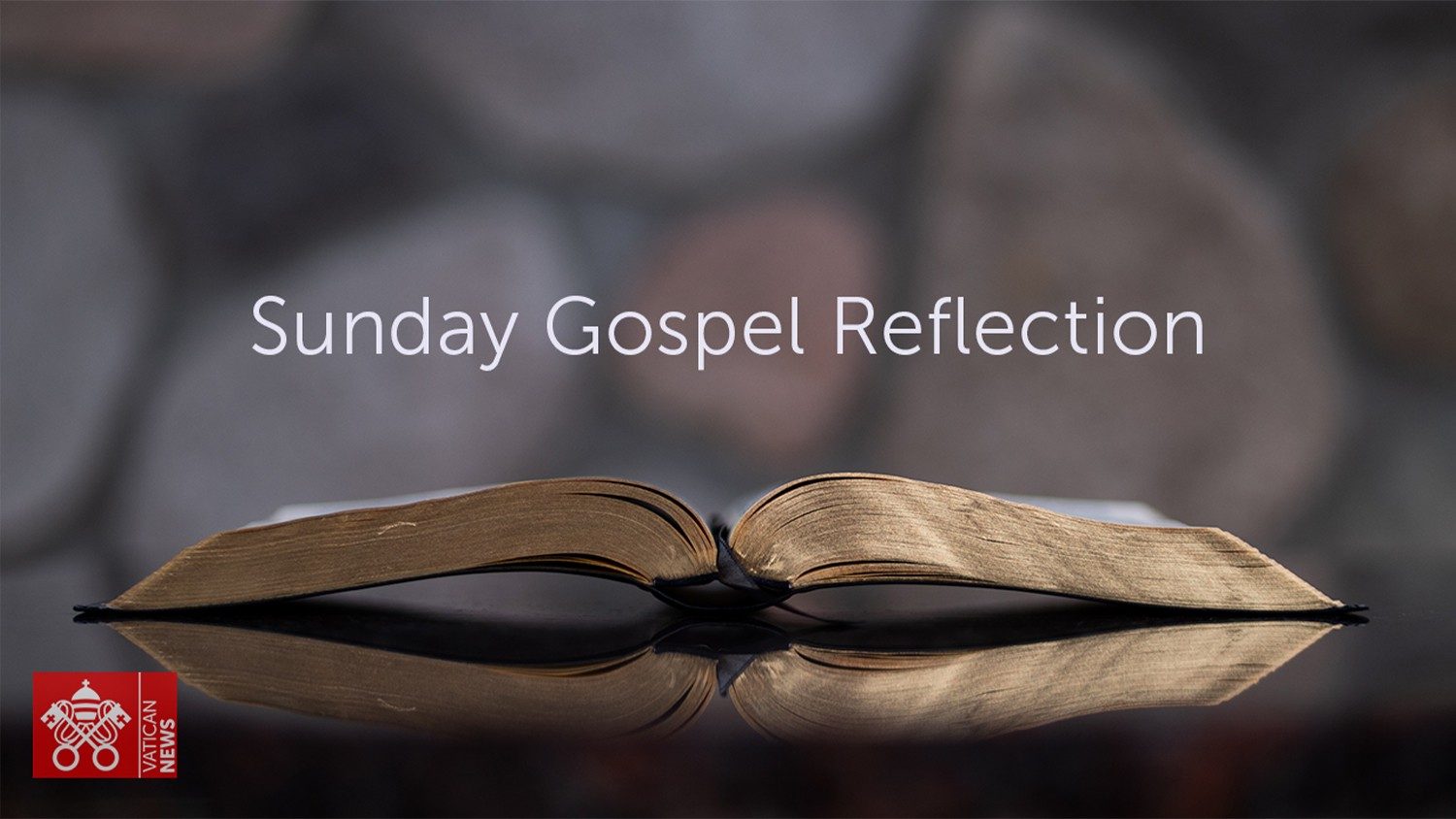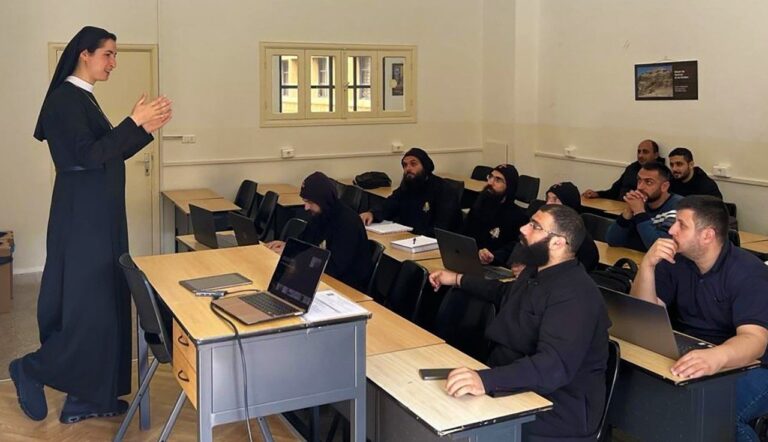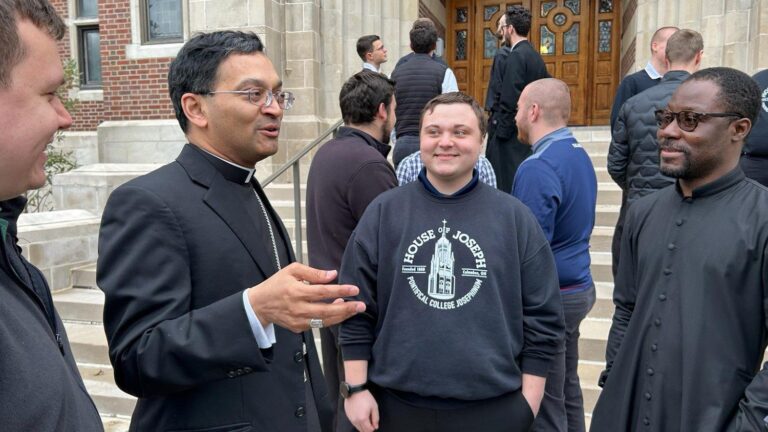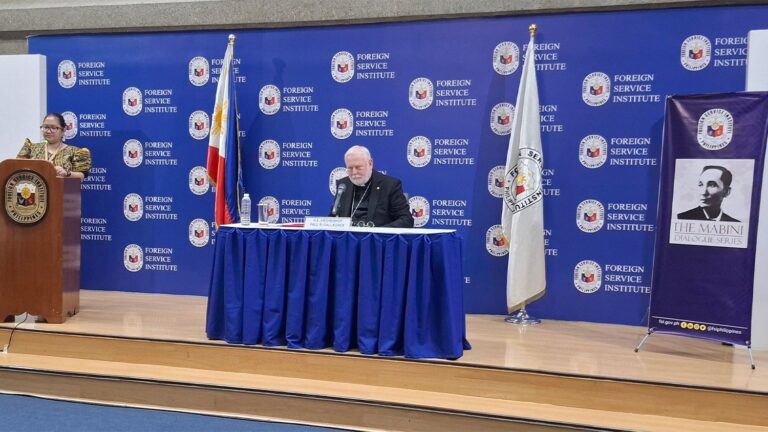Lord’s Day Reflection: God is Love
Vatican news
As the Church celebrates the sixth Sunday of Easter, Father Luc Grégoire, OFM, offers his reflections on the liturgical readings of the day under the theme: “God is love”.
By Father Luke Gregory, ofm
The evangelist John, in his First Letter, gives us the highest, most precise and most perfect definition of God that has ever been given: God is Love.
In the entire history of humanity and its thought, no philosopher or poet has ever reached this synthetic and undeniable summit. When humans have tried to say something about God, they have often found interesting, positive and profound formulations, but they are inadequate or incomplete: we, starting from ourselves, can only intuit something thing about God, but ultimately human language is always insufficient.
John, a young fisherman from Galilee, how was he able to guess a definition so perfect and so ingenious that it is now obvious to everyone? And why has no one before him, not even among the greatest and most learned in history, managed to reach this summit?
John is the only one of the Twelve to have contemplated with his own eyes Jesus nailed to the Cross. In fact, it is not a brilliant intuition of John, but a true and appropriate revelation, a divine Inspiration: because only God can truly say who and what God really was, is and will be .
In the Upper Room, John placed his head on Jesus' chest, as if he were listening to his very heart, entering into perfect harmony with his thoughts and feelings. At the foot of the Cross, John listened to the incarnate Word of God pronounce his last words, the Truth: words of radical trust in the Father, of total gift of his and his own, words full of forgiveness and hope. , of absolute newness and eternal life.
The Cross was the true school of theology for Saint John and Jesus Crucified, the only Master: granting us so willingly and freely the full revelation of the mystery of God.
What was clear and clear to John, in this hour of darkness on Calvary, is unfortunately no longer so obvious to us today. The term Love is today one of the most used and abused terms: if we are not vigilant, without realizing it, the precious word love can become so banal that it loses its true meaning. and is so often confused with similar.
In the texts of today's liturgy, we have some essential coordinates for understanding what love really is.
There is no greater love than this: to lay down one's life for one's friends.
Jesus spoke these precious words: “Greater love has no one than this, to lay down his life for his friends,” at the Last Supper, at a dramatic and supreme moment in his life and his relationship with his friends. who were going to die. betray him, deny him, abandon him; and yet, he, on the other hand, for them, was going to meet his death, the consequence of an unjust condemnation, but also the fruit of his perfect and eternal love.
Furthermore, Jesus said to his disciples: Abide in my love! Not just any kind of love, not just emotional, sentimental, or passionate love. which can be fleeting and misleading. Stay in my love. Indeed, with my own free, conscious and radical choice to make my life a gift: by stripping myself of myself and my defenses; by a docile surrender without recrimination; with the firm desire to base my choice on what remains for eternal life and to overcome the transience of emotions.
So the big question is: What is the sure way to stay in the love of Jesus? Quite simply: respect his commandments! Jesus himself lived his life as a life of love, because he remained in the love of the Father, obeying his will. Obedience defined the life of the Son. Obedience is what defines the true identity of the disciple and friend of Jesus.
Is it perhaps an excessive demand that Jesus addressed to his friends on the last evening of his earthly life: “Greater love has no one than this: to lay down his life for his friends”, and that he addresses us today, through the sacraments. listen to the Gospel? No, this is not a statement, but a gift:
I have spoken these things to you so that my joy may be in you and your joy may be full.
Is it possible to find someone more trustworthy, someone more deserving of our attention and obedience than Jesus and who desires only the fullness of our joy?
So, a question arises: today it is fashionable to say “love is love”, to justify any attitude, relationship and lifestyle, but do I know exactly what what is love? Can I settle for a reductive and misleading understanding of love?
Let us let ourselves be educated by Jesus, all learned in his school of true and eternal love!
Vatican news
sc






